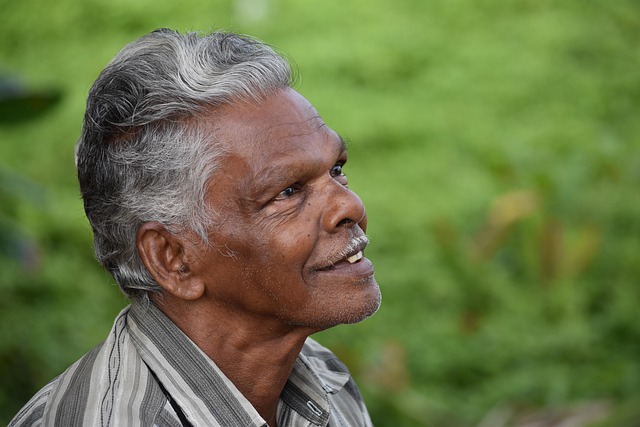End-of-life planning involves creating legal documents like living wills and healthcare directives to specify medical care preferences, even if you cannot communicate. An end-of-life attorney helps craft these documents, appoint a medical power of attorney, and navigate palliative care, hospice care, and life-sustaining treatments. Integrating palliative and hospice care into your healthcare directive ensures dignity and comfort during challenging times. Consulting an end-of-life attorney aligns legal documents with personal goals, providing clarity for healthcare providers and peace of mind for you and your loved ones.
“Navigating the intricate landscape of end-of-life care planning is essential for ensuring your wishes are respected. In this comprehensive guide, we delve into the critical aspects of creating a robust healthcare and financial directive. Understanding the importance of end-of-life planning, crafting a living will, and executing healthcare directives are pivotal steps in granting you control over your medical decisions. Furthermore, exploring the roles of an end-of-life attorney and integrating palliative and hospice care ensures your comprehensive care. By embracing advanced care directives, you empower yourself and foster peace of mind.”
- Understanding End-of-Life Planning and Its Importance
- Creating a Living Will and Healthcare Directive
- Role of an End-of-Life Attorney in Medical Decision Making
- Integrating Palliative Care, Hospice Care, and Legal Directives
Understanding End-of-Life Planning and Its Importance

End-of-life planning is a crucial aspect of ensuring your wishes are respected and your dignity maintained during what can be a challenging period. It involves creating legal documents, such as a living will or advanced care directive, that communicate your preferences for medical treatment, especially in situations where you may not be able to speak for yourself. This proactive approach allows individuals to make informed decisions about their end-of-life care, including the types of treatments they want or don’t want, and appoint a trusted individual as their medical power of attorney to carry out these wishes.
By preparing these directives, individuals can ensure they receive the level of care they desire, whether it involves palliative treatments, hospice care, or specific life-sustaining measures. It’s a way to take control and have a say in how your life is managed during its final stages, providing peace of mind and a clear roadmap for healthcare providers and loved ones. Consulting an end-of-life attorney or legal professional specializing in these matters can be invaluable in crafting comprehensive medical directives tailored to one’s unique needs and ensuring they are legally enforceable.
Creating a Living Will and Healthcare Directive

Creating a Living Will and Healthcare Directive is an essential step in end-of-life planning. These legal documents empower individuals to make informed decisions about their medical care, even if they become unable to communicate or express their wishes. A Living Will outlines a person’s specific preferences for end-of-life care, including palliative and hospice care options, while a Healthcare Directive appoints a trusted individual (often referred to as a health care agent or proxy) to make medical decisions on their behalf.
Consulting with an end-of-life attorney is crucial when drafting these directives to ensure they align with state laws and accurately reflect personal goals. This process involves discussing options for advanced care, considering various scenarios, and specifying preferences for life-sustaining treatments. Properly prepared healthcare directives can provide peace of mind, ensuring that medical choices respect an individual’s autonomy and wishes while navigating the complexities of end-of-life care planning.
Role of an End-of-Life Attorney in Medical Decision Making

When navigating end-of-life care, having a dedicated end-of-life attorney is invaluable. These legal professionals play a crucial role in guiding individuals and their families through complex medical decision-making processes. They assist in crafting and implementing essential documents like living wills and healthcare directives, ensuring that your wishes regarding end-of-life care are clearly expressed and legally binding.
An end-of-life attorney can help you appoint a medical power of attorney, empowering someone to make medical decisions on your behalf if you become unable to do so. They also facilitate conversations with healthcare providers about palliative care planning and hospice care, ensuring that your desired level of comfort and care is maintained during this challenging time. Their expertise in end-of-life legal services helps families navigate the emotional and logistical aspects, allowing them to focus on providing support and spending quality time together.
Integrating Palliative Care, Hospice Care, and Legal Directives

Integrating Palliative and Hospice Care into your healthcare directive is a crucial step in end-of-life planning. These services focus on providing comfort, support, and quality of life for individuals facing serious illnesses or conditions that are expected to be life-limiting. By including palliative and hospice care options in your living will or advanced care directive, you ensure that your wishes regarding pain management, symptom control, and the setting where you would like to receive care are clearly communicated. This personalized approach allows for a more comfortable and dignified transition during what can be a challenging time.
When preparing these directives, it’s essential to consult with an end-of-life attorney or medical power of attorney to ensure your legal documents align with your care preferences. They can guide you through the process, helping you create a comprehensive plan that includes both medical directives and end-of-life legal services. This ensures that your wishes are legally enforceable, providing clarity for healthcare providers and peace of mind for you and your loved ones during end-of-life care planning.
End-of-life planning is a crucial aspect of ensuring your wishes are respected and your loved ones are prepared. By creating a living will and healthcare directive, integrating palliative and hospice care, and involving an end-of-life attorney, you can navigate medical decision-making with clarity and dignity. These comprehensive measures allow for personalized end-of-life care planning, empowering individuals to have control over their journey, even in the face of life’s challenges.
